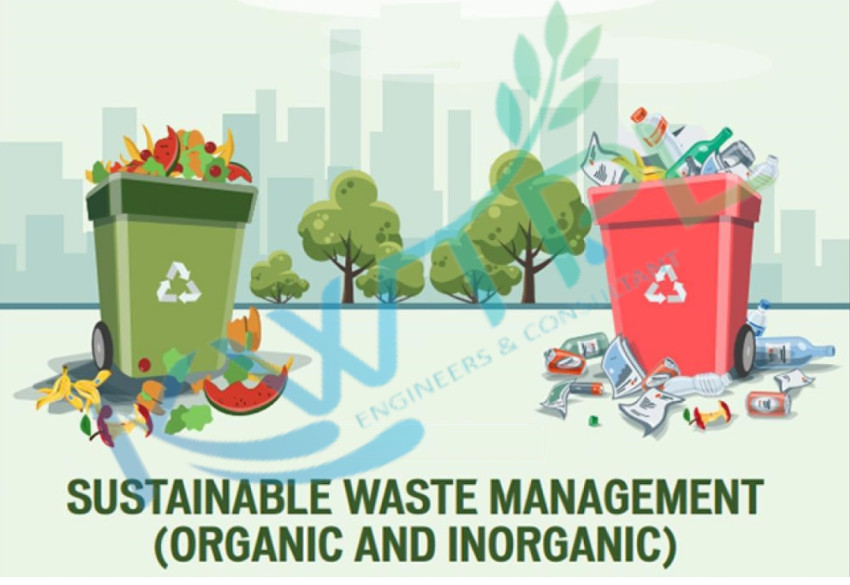
Here are five ways for smart cities to achieve this goal:
- Waste Segregation and Recycling Programs: Smart cities can implement comprehensive waste segregation programs that encourage residents and businesses to separate waste at the source into categories like organic, recyclable, and non-recyclable waste. Establishing efficient recycling facilities and promoting awareness campaigns about the importance of recycling can significantly reduce the amount of waste that ends up in landfills.
- Smart Bin Technology: Deploying smart bins equipped with sensors and technology can revolutionize waste management. These bins can monitor their fill levels in real-time and send alerts to waste collection services when they need emptying. This reduces unnecessary trips and optimizes waste collection routes, leading to reduced fuel consumption and lower greenhouse gas emissions.
- Waste-to-Energy Solutions: Smart cities can invest in waste-to-energy technologies that convert non-recyclable waste into energy through processes like incineration or anaerobic digestion. This not only helps in waste reduction but also generates clean energy that can contribute to the city's power grid.
- Composting Initiatives: Promoting composting among residents and businesses can divert organic waste from landfills, where it would generate methane, a potent greenhouse gas. Smart cities can provide composting facilities, distribute composting bins, and educate the public about the benefits of composting for enriching soil and reducing waste.
- Data Analytics and Monitoring: Utilizing data analytics and real-time monitoring systems can help smart cities track waste generation patterns, identify areas with higher waste generation, and optimize waste collection schedules. This data-driven approach can lead to better resource allocation, reduced operational costs, and more effective waste management strategies.
Here are some key principles and practices involved in sustainable waste management:
- Waste Reduction and Minimization: The most effective approach to waste management is to minimize waste generation at the source. This can be achieved through practices such as reducing packaging, using reusable items, and promoting conscious consumption.
- Recycling and Resource Recovery: Recycling involves the collection, separation, and processing of waste materials to produce new products or materials. This reduces the need for virgin resources and reduces the environmental impact of raw material extraction and manufacturing.
- Composting: Organic waste, such as food and yard waste, can be composted to create nutrient-rich soil amendments. Composting reduces the amount of organic waste sent to landfills and incinerators and enriches soil quality.
- Energy Recovery: Some non-recyclable waste materials, such as certain plastics, can be used as a source of energy through processes like waste-to-energy (WTE) incineration. While controversial due to potential air pollutants, modern WTE facilities are designed to capture harmful emissions and generate electricity or heat.
- Landfill Management: Landfills should be designed and managed to minimize environmental impacts. This includes measures to prevent groundwater contamination, control methane emissions (a potent greenhouse gas produced by decomposing waste), and ensure proper waste compaction and cover.
- Public Awareness and Education: Educating the public about proper waste sorting, recycling practices, and the importance of reducing waste can lead to better waste management behaviors.
- Waste Segregation and Collection: Efficient waste segregation at the source and well-organized collection systems are crucial for effective recycling and waste diversion.
- Innovative Technologies: Research and development of new technologies can help improve waste sorting, recycling processes, and waste-to-energy conversion, making waste management more efficient and sustainable.
- Policy and Regulation: Government regulations and policies play a significant role in shaping waste management practices. Clear guidelines, incentives, and penalties can encourage businesses and individuals to adopt more sustainable waste management practices.
- Community Engagement: Involving local communities in waste management decision-making processes can lead to better compliance and understanding of sustainable practices.
Conclusion
Sustainable waste management should be a top priority for every smart city striving towards an eco-friendlier future. By implementing preventive measures like reducing packaging materials or promoting reusable products along with effective recycling programs and encouraging composting initiatives at all levels of society - from individuals to corporations - we can create cleaner environments while conserving valuable resources.




